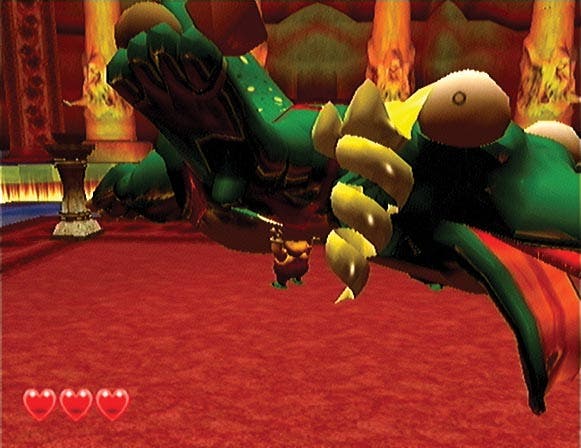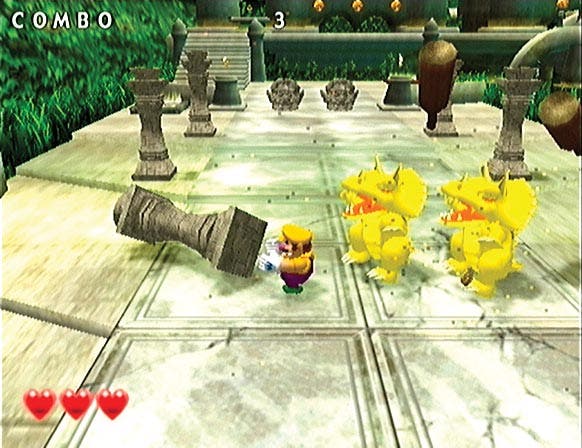Wario World
By Treasure, to treasure?
Kristan's Waaa on the subject...

At first, I was pretty annoyed with Wario World, or more specifically, annoyed with Nintendo for sitting on this game for so long. Having played the game for about two hours at E3 2002, it clear that nothing whatsoever has changed in the last 12 months. When delays like this occur, is it any wonder the Cube is struggling? Still, it's a good summer game in the release wasteland; we should be grateful.
For the first hour or so Wario World comes across as nothing more than a quirky, generic platformer. Run, jump, bash, collect. Oh look a boss that has a weak spot, Splat. Yawn. Surely the game can't have been by the legendary Treasure; super hardcore developer extraordinaire? Didn’t we leave level-based platformers behind years ago? What happened to the freeform expansive multi genre straddling spirit of adventure a la Jak & Daxter? But then we are talking about Treasure; a developer that readily waves two fingers at the notion of the perceived wisdom of what makes a good game, and focuses and refines areas of gaming that others may consider old hat.
By going back to the conventional form of strict level based design, Treasure has created a tight, superbly designed game that invites you to explore every nook and cranny. Yes, it’s short, and the first world is ridiculously easy, but there are more than enough positives to draw from Wario World to have you grinning throughout - and unlike so many games, you'll almost certainly bother to finish it.

The control system, for one, is one of the tightest ever devised for a platformer. At no stage is the player ever fighting against the game mechanics - you instinctively know what to do and when, and neither does the game arbitrarily trip you up with unhelpful camera angles, largely as a consequence of the pseudo 2D nature of the game. At first, the camera system seems a little odd, but in the 'trapdoor' puzzle sections it's an absolute godsend, allowing Treasure to create true 3D levels that simply wouldn't work any other way. Some of them are absolutely fiendish - especially as you progress to the latter stages, but you can’t help but admire the design even when you're tearing your hair out.
Visually, it's never the most amazing game you've ever seen, with flat texturing spoiling the overall appeal, but almost every creature in the game is oozing with charm and detail that you can’t help falling in love with the game.
Where the game falls down is its length; at around eight hours it's going to take you less than a good weekend session to plough through it, and for £40, frankly that's not good enough. It's Luigi's Mansion all over again, in that it's a great little game that charms the pants off you, but it's too short to justify the price tag. We're certainly not averse to short games - in fact we wish games were shorter, generally, but publishers ought to consider aligning the price tags to match the longevity. At £20 we'd say this was an essential purchase for platform fiends, but £40 seems steep, to say the least.








